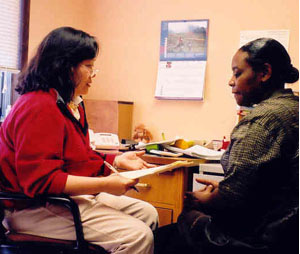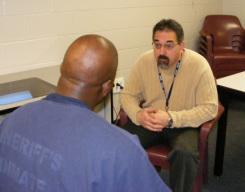Tree Pose: Heart and Mind Balance
I admit it; I’ve tried yoga. (This is not the point in which you laugh yet).
Although, my yoga odyssey is humorous to watch (both my husband and my cats cock their heads to the side in bewilderment), it has helped me to at least address, if not practice, the concept of balance. And one pose, in particular, seems to concentrate on that goal: the tree pose. Here’s a quick rundown of that pose for those of you out there who are not bewildering your significant others and pets:

First, you stand still, while slightly shifting your weight onto your left foot. Next, take your right leg, bending your right knee, all while grabbing your right and positioning it on your inner left leg. Anyone fall down yet? Balance! Yes, wonderful, beautiful balance!
But wait, there’s more.
Tree Pose: Heart and Mind Balance Read More »







 who at one time would have been hospitalized for their problems. As many as half of them are also addicted to alcohol and/or drugs. Many are “self-medicating” — using addictive substances to cope with their mental problems. Social service professionals usually do not like working with these “dually diagnosed” people because they can be so demanding and time-consuming. They can be too destructive and troubled for the typical addiction recovery program. And, mental health workers shy away from them because they often do not stay sober long enough for treatments to be effective. So, they end up at the rescue mission.
who at one time would have been hospitalized for their problems. As many as half of them are also addicted to alcohol and/or drugs. Many are “self-medicating” — using addictive substances to cope with their mental problems. Social service professionals usually do not like working with these “dually diagnosed” people because they can be so demanding and time-consuming. They can be too destructive and troubled for the typical addiction recovery program. And, mental health workers shy away from them because they often do not stay sober long enough for treatments to be effective. So, they end up at the rescue mission.

